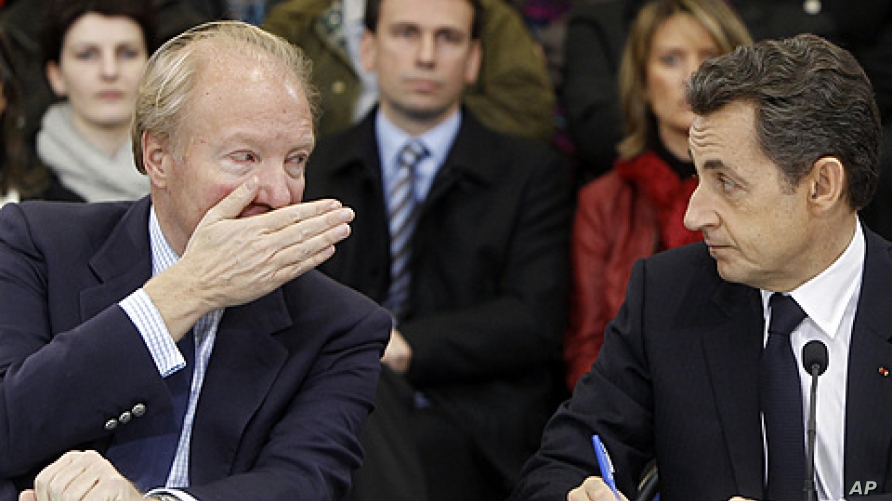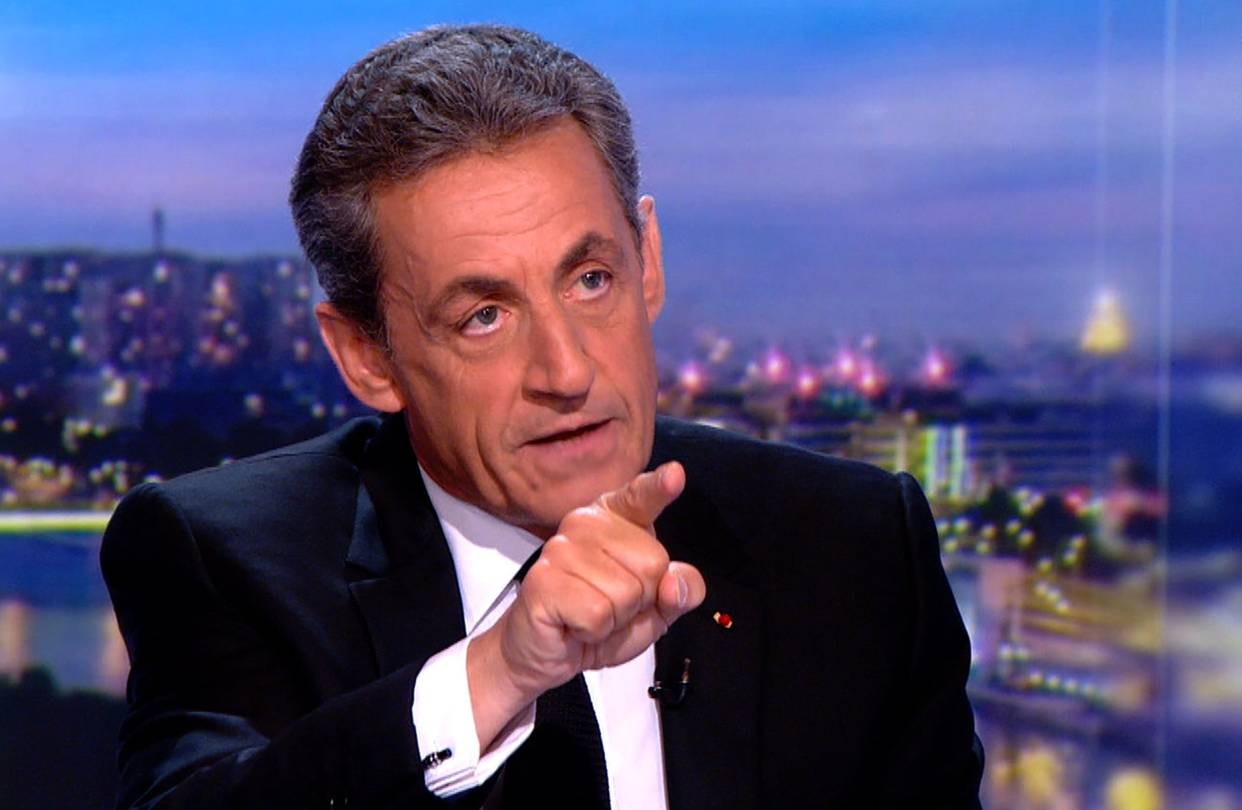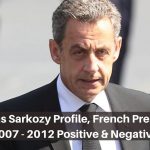Nicolas Sarkozy Profile, French President 2007 – 2012 Positive & Negative

Nicolas Paul Stéphane Sarközy de Nagy-Bocsa is one of the Frances most prominent and popular politicians. His parents were immigrants, and he grew up outside the circles of the French political elite. Beside, Sarkozy beat the odds by slowly climbing up the political ladder until he reached the highest level – the office of the presidency. Nicolas Sarkozy was crowned France’s president winning against Francois Hollande on May 16, 2007.
General Information About Nicolas Sarkozy
| S.No. | General information | Details |
|---|---|---|
| 1 | Date of Birth | 28 January 1955 |
| 2 | Place of Birth | Paris, France |
| 3 | Political Party | The Republicans |
| 4 | Marriages | Marrie Dominique Culioli (1982-1996); Cécilia Ciganer-Albeniz (1996-2007); Carla Bruni (2008-present) |
| 5 | Alma Mater | Paris Institute of Political Studies, 1979-1981: University of Parris, Law, 1978 |
Early life And Education
Sarkozy was born on 28 January 1955 in Paris (17th arrondissement) to Greek and Hungarian parents who were immigrants in France. Sarkozy’s father left the family when he was four years old. Then, he was raised in France by his mother’s father. Later in 1959, Sarkozy’s parents got divorced. Following their divorce, his mother was forced to move in with her father in a small mansion in the 17th arrondissement of Paris.
His paternal disputes taught him valuable lessons in life. Sarkozy was influenced by his grandfather and stated that the former president Charles de Gaulle and Pope John Paul II were two of his biggest influences. Nicolas Sarkozy qualified as a lawyer in 1981 and pursued advanced studies in political science at the Institut d’Études Politiques in Paris. Being highly ambitious and a skilled political leader, Sarkozy was elected mayor of Neuilly-sur-Seine in 1983, where he was in service until 2002.
Political Career

In 1993, he made his mark on the national scene by becoming the budget minister and official spokesman in the government of Prime Minister Édouard Balladur. Balladur had been put forward by rightist politicians to serve as prime minister under Socialist Pres. Sarkozy encouraged Balladur to fight for the seat of the president himself and thereby earned the lasting hatred of Chirac, to whom he had once been very close. When Balladur lost to Chirac, Sarkozy was shut out of the subsequent centre-right government of 1995–97.
Sarkozy returned to office as interior minister in 2002. Two years later in March 2004, he became the Finance Minister of France. Soon after, Chirac asked him to select between his government post and becoming president of the centre-right Union for a Popular Movement (UMP) party. UMP is the neo-Gaullist successor party to the Rally for the Republic founded by Chirac. Sarkozy chose to take the UMP job and quit the government in November 2004.
Later in 2005, Sarkozy had to struggle with three weeks of rioting in the suburbs of Paris and other cities. Although critics blamed him for provoking the car-burning protesters by calling them “scum,” his supporters approved of his strong decision on law and order as well as his call for tougher immigration laws. In 2007 Sarkozy competed for president of France. He finished first in the initial round of voting on April 22, winning 31% of the vote. In the runoff election on May 6, Sarkozy defeated a political leader of the Socialist Party, capturing 53% of the vote. He was sworn in as president on May 16, 2007. He promised new developments in France, including radical economic reforms that would reduce taxes and liberalize the country’s labour market, and closer relations with the United States.
Nicolas Sarkozy as President
President Nicolas Sarkozy made several unexpected cabinet appointments during his presidency, including the country’s first woman finance minister – Christine Lagarde, the first full cabinet member of North African origin – Rachida Dati, and a maverick Socialist – Bernard Kouchner as foreign minister. Sarkozy also chose Socialists for several other appointments in the system.
In the first few months of his presidency, Sarkozy carried out some of his promised tax-cutting rand labour market reforms. He decided not to eliminate the 35-hour maximum on the standard workweek but rather to use tax relief on overtime pay to justify the law’s rigidity. Apart from the big election win, Nicolas Sarkozy also won narrow approval from the legislature for a constitutional change to secure the presidency to two five-year terms.
Sarkozy was pro-American as compared to his predecessors. He showed signs of being more accommodating to the United States culture and ideologies and of being somewhat more troublesome to some of his eurozone partners.
Here’s a list of the positives and negatives during the presidency of Francois Hollande:
1. Lisbon Treaty
In 2007 Sarkozy drew worldwide attention as he and his wife Cécilia played in gaining the release of six Bulgarian medics who had been held in Libya since 1999. While applauding the release, some in France and the EU criticized Sarkozy’s involvement as well as his wife’s participation. His efforts in support of this agreement (Lisbon Treaty) were rewarded when the parliament ratified it in February 2008. Sarkozy continued to play a vocal role in European affairs once France assumed the presidency of the EU, which rotates among member countries, that July.
2. Public criticism of personal life display
French media had traditionally avoided interest in the private lives of French leaders. Sarkozy’s personal problems were well known even before his presidency because of the news of his separation from his second wife, Cécilia, his marriage to singer Carla Bruni in February 2008. Many in France accused Sarkozy himself of cultivating a flashy image to distract the public from negative aspects of his administration.

3. Legal Troubles
In March 2013 Sarkozy was investigated for improperly extracting donations from Liliane Bettencourt, the heiress to the L’Oréal cosmetics empire. Those proceedings were dropped in October 2013, but information obtained during that investigation, as well as a case involving some €50 million in illegal contributions from Muammar al-Qaddafi, a Libyan leader, led to additional legal woes for Sarkozy and his inner circle. The following year Sarkozy, his lawyer, and a French magistrate were charged with corruption. Another accusation against Sarkozy was about a new scandal involving alleged kickbacks from the sale of 45 helicopters to Kazakhstan.
Summing up
In February 2017, A French judge ordered Nicolas Sarkozy to face trial for campaign financing fraud. Sarkozy was accused of exceeding election expenses during his 2012 re-election campaign. Last year in March, Sarkozy was accused about his acceptance of money from Libya to finance his 2007 election campaign. Serge Hefez, a French psychoanalyst, wrote a book, “Obsessive Sarkosis”, about the extent to which Sarkozy had got under French people’s skins, into their dreams and minds.






